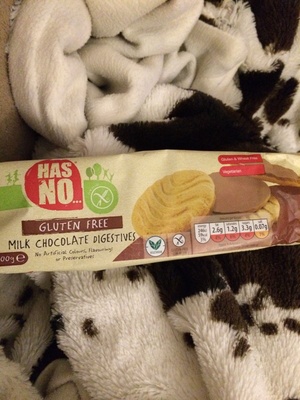Milk Chocolate Digestives - Has No... - 200g
Ambiguous barcode: This product has a Restricted Circulation Number barcode for products within a company. This means that different producers and stores can use the same barcode for different products.
×
This product page is not complete. You can help to complete it by editing it and adding more data from the photos we have, or by taking more photos using the app for Android or iPhone/iPad. Thank you!
×
Barcode: 25320862
Quantity: 200g
Brands: Has No...
Labels, certifications, awards: No gluten
Countries where sold: United Kingdom
Matching with your preferences
Health
Ingredients
Food processing
Additives
Ingredients analysis
The analysis is based solely on the ingredients listed and does not take into account processing methods.
Nutrition
Environment
Packaging
Transportation
Report a problem
Data sources
Product added on by openfoodfacts-contributors
Last edit of product page on by roboto-app.
Product page also edited by toni.
If the data is incomplete or incorrect, you can complete or correct it by editing this page.




